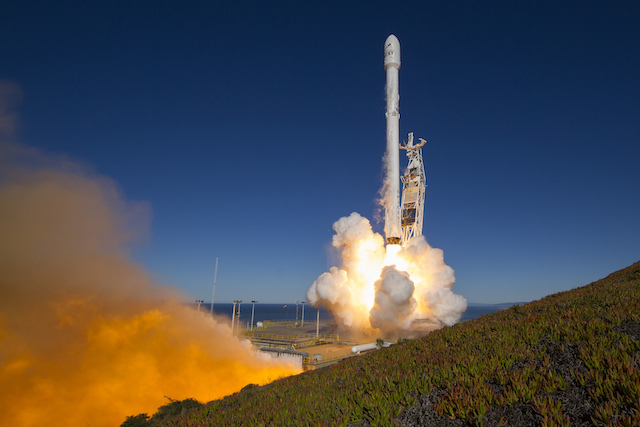| Clutch plays: This week saw two immensely influential tech companies pull off key victories, on the heels of efforts that weren't so impressive: Nintendo made a great first impression with its new Switch console, and SpaceX got back in the saddle and started launching rockets again. Very different moves, but there's a through line connecting them tied to how the best tech companies react when up against the wall. SpaceX's successful Falcon 9 launch for client Iridium put 10 satellites into low-earth orbit, the first of 70 it'll install over the course of seven total missions for the communications company. The launch was the first since a SpaceX rocket loaded with Facebook's $200 million internet-delivering satellite exploded during pre-flight fueling on September 1 last year. 
It was a remarkable achievement, both because the launch went very smoothly, including a successful recovery of the first stage of the Falcon 9 rocket used – and because it took only four months for SpaceX to return to flight, a short turnaround time following such an incident, and two months fewer than it took the company to get back to active launch status following its 2015 mid-flight rocket loss. Nintendo's wins for the week seem modest by comparison to hurling expensive geo-spatial communications tech into space – it held a preview event of the upcoming Nintendo Switch console, kicked off pre-orders, and invited media to try out the device for the first time. But pre-sales of the console have sold out in most countries and retailers, and press reaction was largely favorable to the device, and Nintendo's unique approach. Both Nintendo and SpaceX are coming off of big setbacks with these launches (both figurative and literal); Nintendo's Wii U was not the successor to the Wii the company hoped it would be, and the entire future of its hardware business could rest on the Switch reversing the impact of the Wii U's cool consumer reception. SpaceX likewise probably could not have weathered a failed launch following last year's mishap – financials for the company unearthed by the Wall Street Journal paint a picture of a company with little margin for error remaining on its balance sheet. The takeaway here isn't so much the execution, but that both these companies had the runway to effect these comeback moves; both Nintendo and SpaceX have done a tremendous job building resilience into their brand ahead of time, so that when a storm arises they have reserves to draw upon in terms of weathering said trouble. It's a lesson in how you can prepare for unforeseen challenges by investing not necessarily in product or execution, but in building public affinity for what you do in general, in order to extend your runway later when you need it most. Neither of these events alone guarantees future success for these companies, but they are promising signs that prior setbacks won't be story-ending events for either. And the story both have crafted is why they've been afforded that luxury in the first place, to some extent. Get the context: |